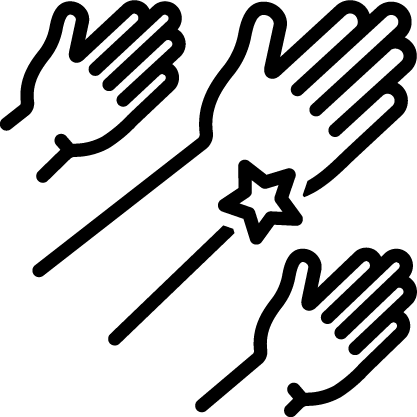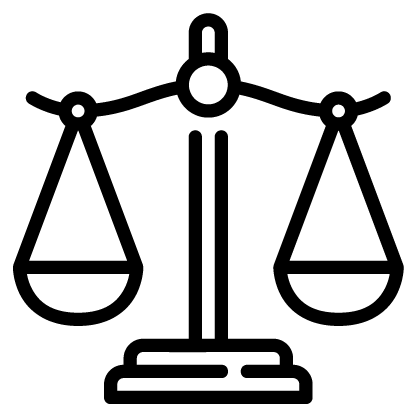Fines
A fine is a monetary penalty for breaking a law. There are many offences you can be fined for, but the most common ones relate to breaking traffic laws, public transport laws, minor criminal laws, and local council laws.
Penalty notices
The most common types of fines are penalty notices, also called infringement notices, on-the-spot fines, tickets, or criminal infringement notices (CINs). They can be issued in person, attached to a vehicle, or sent to you in the mail, and contain details of the alleged offence and the amount you need to pay.
Legal Aid NSW provides detailed information about your options for dealing with penalty notices, including: how to pay the fine, what to do if you disagree with it, what happens if you decide to go to court, and what will happen if you don’t deal with your fine.
FineFixer is a useful tool to help you understand how to deal with your fine.
For traffic fines, the Traffic Offence Tool will help you find the best way to deal with your fine.
Traffic offences
If you’ve received a court attendance notice for a traffic offence, or a driver licence suspension, the Traffic Offence Tool can also explain your options and help you make a decision on what to do.
If you’ve received a fine for a traffic infringement captured on camera, you can review the photos at Service NSW.
Court fines
If you receive a fine from going to court, you’ll receive a Notice of Penalty with details of the fine and the date you need to pay it. This is usually within 28 days.
Read more about dealing with your court fine.
Non-payment of a toll
A toll notice requiring payment is not a fine. However, if you do not respond to it, you may be sent a penalty notice for not paying the toll – which is a fine. Use the information in this article or FineFixer to find out how to deal with this fine.
Beware: some scammers are sending fake SMS toll notices. Find out if your toll notice is real.
Don’t ignore your penalty notices and fines
If you don’t deal with any of these fines, Revenue NSW will take enforcement action against you to recover the money and add enforcement costs to your fines – you could have your licence and registration suspended. The additional enforcement costs and the penalties for unlicensed driving, or driving an uninsured/unregistered car, are a lot higher and more severe than your original fine.
Keep your address updated
Not knowing about a fine is not a defence, so always remember to update your address if you move – especially if you have a car. Penalty notices that are sent by mail will be sent to your last known address. If you haven’t updated it, you could end up with large debts for fines, enforcement costs, and additional costs and penalties.
Private fines
You may be sent a letter or given a document that looks like a fine when you breach a rule that applies to private property or organisations. This isn’t really a fine, although the private organisation might call it that. These notices commonly relate to private car parks such as those found at shopping centres, clubs, or on other private land.
Private fines can’t be referred to Revenue NSW for enforcement, but the private organisation might take you to court if you don’t deal with it, so you shouldn’t ignore their letters. If you receive a ‘fine’ from a private organisation and you don’t believe you should have to pay it, contact us for legal advice.
Read more about dealing with private fines.
Don’t get fined travelling on public transport
When using public transport in Sydney, you need to tap on when you board and tap off with the same card when you arrive at your stop. If you are transferring to another service, you need to tap on again and tap off at your destination.
When you tap on and off correctly:
- You’re charged the correct fare.
- You won’t be fined for travelling on an invalid ticket.
- Your trip will count towards your Daily and Weekly travel caps.
- If transferring to another service within an hour of tapping off the previous trip, the trips will be combined into a single trip, meaning you’ll be charged a lesser fare for your combined travel.
If you’re caught travelling without a valid ticket, not paying the correct fare, or using a concession ticket without being in possession of your proof of entitlement card (usually this will be your student card), you may be issued with a fine of $200 (Maximum $550).
Read more about transport fines.
Further information
More information on fines and how to deal with them is available at Service NSW.
If you need advice or assistance in dealing with any type of fines, contact our Legal Service for help.
Disclaimer
This information is current as at December 2023 and is intended as a guide to the law as it applies to people who live in or are affected by the law as it applies in NSW. It does not constitute legal advice.
Download this article as a Word document
Download this article as a PDF
Written by SUPRA Legal Service December 2023.
Need help?
Our casework and legal services are here for you.

Postgraduate Advocacy Service
Our caseworkers can help with any problems you face while you study at Usyd, from academic appeals to renting.


Stay in touch with us